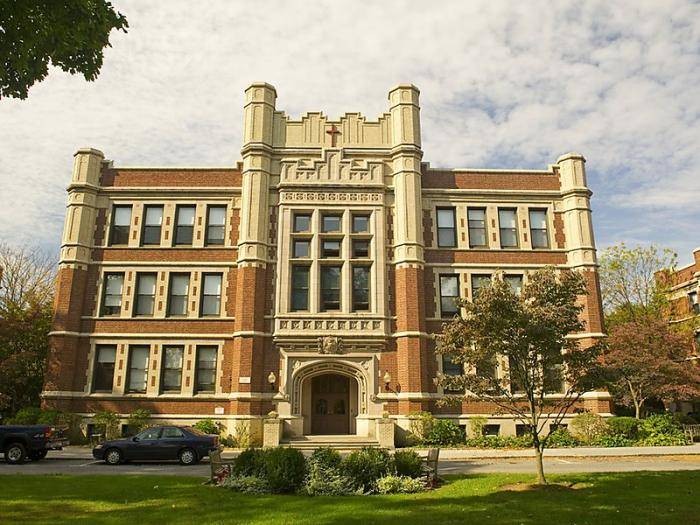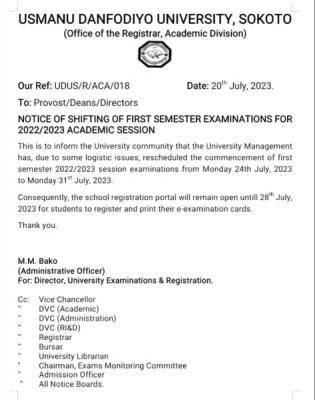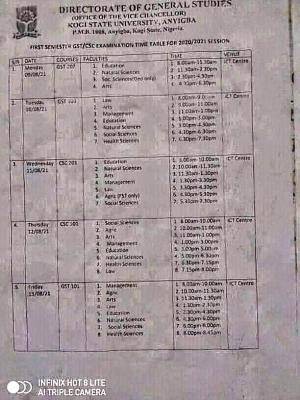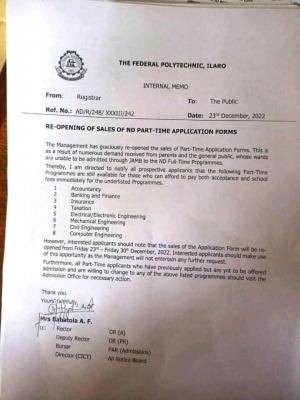
Not too long ago, Jeff Stibel, Chairman and CEO of Dun & Bradstreet Credibility Inc., said in his Harvard Business Review article, “Our most precious natural resource is not diamond or oil or agriculture; it is human capital.”
Sincerely, this insightful assertion cannot be over emphasised. Globally, countries are today striving and working tirelessly to generate innovative ideas and cutting-edge insights that would give them sustainable competitive edge and advantages in the 21st century global marketplace.
Hence, as a former British Prime Minister, Tony Blair, used to opine with regard to the United Kingdom’s competitive race: Education! Education! Education! Without sounding unclear, the race to achieving “education edge” is clearly the focus of all advanced and emerging economies of the world, today. Education, qualitative one, has become the Holy Grail to being competitive in today’s knowledge-driven economy!
As a result, education spending, policies and interventionist ideas and programmes have been on the increase, worldwide. Expectedly, the influx of people (young and old) to the education industry has immensely increased, thereby increasing the cost of getting education, everywhere across the universe. Experts argue that it rose to 400 per cent in the US alone. Another factor that sparked this off was the 2009 Programme for International Students Assessment results where the US students performed averagely in Math, Reading and Science.
Its rival, China, outsmarted and came tops in three of the subjects outcompeting highly hymned and cerebrally-gifted nations such as Finland, Japan, Germany, South Korea and others; despite the fact that the country actually competed in it for the first time in the history of the globally recognised scholastic assessment. It became a wake-up call to the Obama administration and other serious nations at large.
Globally, educational reform is being clamoured for and agitations geared towards radically improving education quality and standards via monetary investments and the like, for example, have been on the increase. More so, innovative models and practices are injected in order to boost existing education quality and accessibility. This writer has continually researched and keenly observed educational trends and developments amongst nations. From Ethiopia to Azerbaijan, the US to Uruguay, among others, the cry for educational reforms has almost become a global mantra and a deep yearning for accessibility of this human conception has continued to grow tremendously. In the US, for example, the government has recently launched the “No Child Is Left Behind” programme, to this end. On the contrary, in China, students had to riot, claiming that the government is not creating enough access to education for its citizenry.
In Nigeria, however, the case seems to be patently different. One begins to wonder and curiously ask: Are we living in Mars? Again, as a keen observer of global education developments, trends and practices, innovations and so on, empirical facts and the current realities in the country make one begin to imagine and ask questions such as: Is Nigeria oblivious of the current global realities? Or, are we just self- deluded and only pretending that all is well with our education system?
Information and Communications Technology advances have created new avenues for communications, learning, social relationship, information gathering and so on; cheaply and flexibly. The ICT has, also, helped to a very large extent – to the democratization of learning. Think about e-Learning, m-Learning, and other online learning channels and the list goes on. In their quest for competitiveness, advanced and emerging economies are presently exploring other unconventional and informal methods and models for educating their wards and citizenry at large.
In Africa, apart from South Africa, Botswana and of course, Ghana (whose education sector has developed to the extent that it is today exporting education, especially to the “Giant” of Africa: Nigeria!); and maybe some few thoughtful and education-oriented countries in Africa who are gearing up for “Global Education Race”, Nigeria, to put it mildly, seems to be confidently sleeping! From an objective and data-driven perspective, our leaders, from independence, and the majority of the populace today, considering the current class and character of learners, students, graduates and youths of today, one is tempted to ask this mind-boggling question: Does Nigeria still have the intellectual capital and cerebrally-gifted individuals to produce and recreate brilliant minds, leading luminaries, great geniuses and the like, such as Nobel Laurate Wole Soyinka, Mariam Aloma Muktar (first female Chief Justice of Nigeria, CJN), Chimamanda Ngozi Adichie, Philip Emeagwali, Aliu Jelani, Adefolake Solanke (first female Senior Advocate of Nigeria, SAN), etc.; again? Hmm! What a tragedy! Is there any hope for this great, but hitherto, sleeping giant?
Unemployment is one of the recurring 21st century challenges. The European Union, the United States, and other advanced countries are not exempted from this global challenge! In Nigeria, the case is even pathetic. In spite of the challenge of unemployment, there are still people who move and even turn down one job for another. I know the qualities and attributes these few “chosen” are made of. The scarcity of “real” talent is universal. I feel the pains of this sea of unemployed youths! But if the truth must be told, can these graduates, which our education institutions churn out, compete with their contemporaries in today’s global marketplace? From observations, most Nigerians who observe and try to find out the interests, passions and indeed obsessions and of course aspirations of most of these students and graduates alike, shockingly discover that most of them glorify and deify music rather than mind; singers rather than scientists; comedians rather than CEOs; dancers rather than doctors; artistes rather than architects.
What a national calamity! Just recently, I watched Teju Baby Face’s TV show and I wept for this nation! The Vice-Chancellor of Babcock University and a music maestro, Davido, who happened to be an undergrad also at the institution, were both guests on the TV show.
The VC was first introduced and to the audience, he was just a scholar and nothing more! When the artiste was introduced, the audience, in an uncontrollable euphoria and seeming display of disdain for knowledge, metaphorically closed down the studio! It was as if, the long-awaited “messiah” had finally arrived… I knew immediately what our predominant national value is as a people. Little wonder, we (Nigerians) die for lack of knowledge!
Across the globe, Poor Reading Culture is, to say the least, a dying if not dead habit. In this connection, David Godine, once asserted that “Only 32 per cent of the US population has been to a bookstore.” In Nigeria, however, the number, from all indications is far less. Take for example, a friend once joyfully enthused that the last time he touched a book was when he was doing his National Youth Service Corps programme, and that up till now, the book, “Gifted Hand”, by Dr. Ben Carson, is still lying on a stool in his room! This was several years ago. Imagine!
As Barack Obama said, “We know that education is everything to our children’s future. We know that they will no longer just compete for good jobs with children from Indiana, but children from India and China and all over the World.” Given this, the question that begs for answer is, whose “obituary”, metaphorically speaking, is it? The rich, middle -class and their children or, the poor masses and their ocean of uneducated and benighted children or Nigeria as a nation? Time will, definitely, tell!




